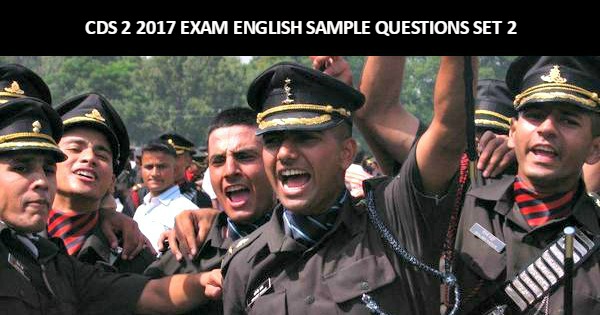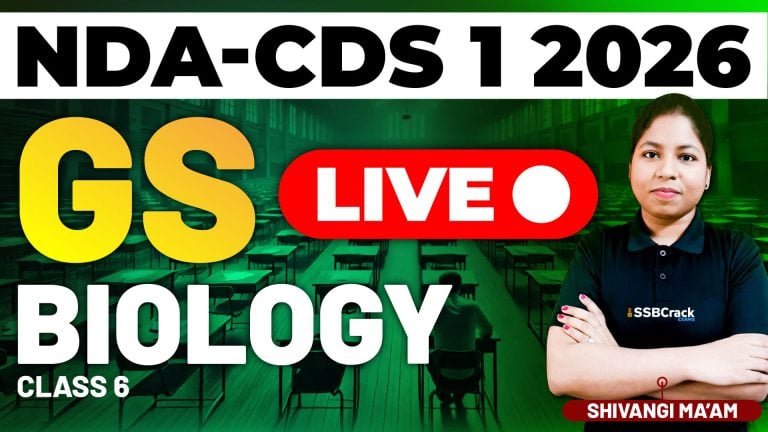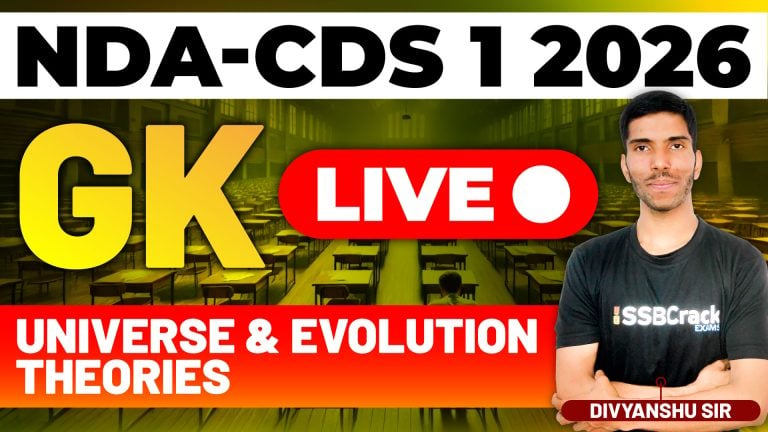In this article we will see some CDSE important english questions from previous years CDSE papers.
CDS 2 2017 Exam English Sample Questions Set 2

I was engaged in many activities and I wanted a proper reconciliation between my activity and thought. Thought without ____blank1__ (wish/action/idea) is undeveloped thought. Action without __blank2__ (thought/wish/idea) is folly. Of course we __blank3___ (never/belatedly/sometimes) act on some impulse or __blank4___ (peaceful/uncontrollable/indisputable) urge. If suddenly you throw __blank5__ (no/an/a) brick at me and my ___blank20___(hand/wist/finger) goes up in front to ___blank6__ (stimulate/rescue/protect) myself, it is an automatic, ____blank7____ (uncontrollable/instinctive/impulsive) action and not a result __blank8___ (to/in/of) deliberate thought. Our living is __blank9___ (made/condioned/developed) by a series of automatic __blank10__ (thoughts/actions/wishes) from morning till night. Anything __blank11____ (we/I/they) do outside that common range of __blank12___ (thoughts/ideas/actions) however, has to be __blank13____ (proceeded /preceded/followed) by some measure of thinking. ____blank14_ (Some/if/the) more action and thought are ___blank15__(developed/allied/hostile) and integrated, the more effective __blank16___ (they/thoughts/we) become and the happier you __blank17__ (appear/develop/grow). There will then be no __blank18___ (reconciliation/conflict/inflict) between a wish to do something and ___blank19___ (inability/probability/plausibility) to act.
Q. Blank 1
a. wish
b. action
c. idea
d. none
Answer. b
Q. Blank 2
a. thought
b. wish
c. idea
d. none
Answer. a
Q. Blank 3
a. never
b. belatedly
c. sometimes
d. None
Answer. c
Q. Blank 4
a. peaceful
b. uncontrollable
c. indisputable
d. none
Answer. b
Q. Blank 5
a. no
b. an
c. a
d. none
Answer. c
Q. Blank 6
a. stimulate
b. rescue
c. protect
d. none
Answer. c
Q. Blank 7
a. uncontrollable
b. instinctive
c. impulsive
d. none
Answer. b
Q. Blank 8
a. to
b. in
c. of
d. none
Answer. c
Q. Blank 9
a. made
b. conditioned
c. developed
d. none
Answer. b
Q. Blank 10
a. thoughts
b. actions
c. wishes
d. none
Answer. b
Q. Blank 11
a. we
b. I
c. they
d. none
Answer. a
Q. Blank 12
a. thoughts
b. ideas
c. actions
d. none
Answer. c
Q. Blank 13
a. proceeded
b. preceded
c. followed
d. none
Answer. b
Q. Blank 14
a. Some
b. if
c. the
d. none
Answer. c
Q. Blank 15
a. developed
b. allied
c. hostile
d. none
Answer. b
Q. Blank 16
a. they
b. thoughts
c. we
d. none
Answer. a
Q. Blank 17
a. appear
b. develop
c. grow
d. none
Answer. a
Q. Blank 18
a. reconciliation
b. conflict
c. inflict
d. none
Answer. b
Q. Blank 19
a. inability
b. probabilit
c. plausibility
d. none
Answer. a
Q. Blank 20
a. hand
b. wrist
c. finger
d. none
Answer. a
Passage
To avoid the various foolish opinions to which mankind is prone, no superhuman brain is required. A few simple rules will keep you, not from all errors, but from silly errors.
If the matter is one that can be settled by observation, make the observation yourself. Aristotle could have avoided the mistake of thinking that women have fewer teeth than men. by the simple device of asking Mrs. Aristotle to keep her mouth open while he counted. Thinking that you know, when in fact you do not, is a bad mistake to which we are all prone. I believe myself that hedgehogs eat black beetles, because I have been told that they do; but if I were writing a book on the habits of hedgehogs, I should not commit myself until I had seen one enjoying this diet. Aristotle, however, was less cautious. Ancient and medieval writers knew all about unicorns and salamanders; not one of them thought it necessary to avoid dogmatic statements about them because he had never seen one of them.
Q. The writer believes that
a. most people could avoid making foolish mistakes if they were clever
b. through observation we could avoid making many mistakes
c. Aristotle made many mistakes because he was not observant
d. All errors are caused by our own error in thinking
Answer. b
Q. With reference to the passage, which one of the following is the correct statement ?
a. Aristotle was able to avoid the mistake of thinking that women have fewer teeth than men
b. Aristotle thought women have fewer teeth than men
c. Aristotle proved that women have fewer teeth by counting his wife’s teeth
d. Aristotle may have thought that women have fewer teeth because he never had a wife
Answer. b
Q. The writer says that if he was writing a book on hedgehogs
a. he would maintain that they eat black beetles because he had been told so
b. he would first observe their eating habits
c. he would think it unnecessary to verify that they ate black beetles
d. he would make the statement that they ate black beetles and later verify it
Answer. b
Q. The writer is of the opinion that
a. unicorns and salamanders were observed by ancient and medieval writers but were unknown to modem writers
b. ancient and medieval writers wrote authoritatively about unicorns and salamanders though they had never seen them
c. unicorns and salamanders do not exist
d. only those who had observed the habits of unicorns and salamanders wrote about them
Answer. d
Q A ‘dogmatic statement’ in the context means a statement which is
a. convincing
b. proved
c. unquestionable
d. doubtful
Answer. c







